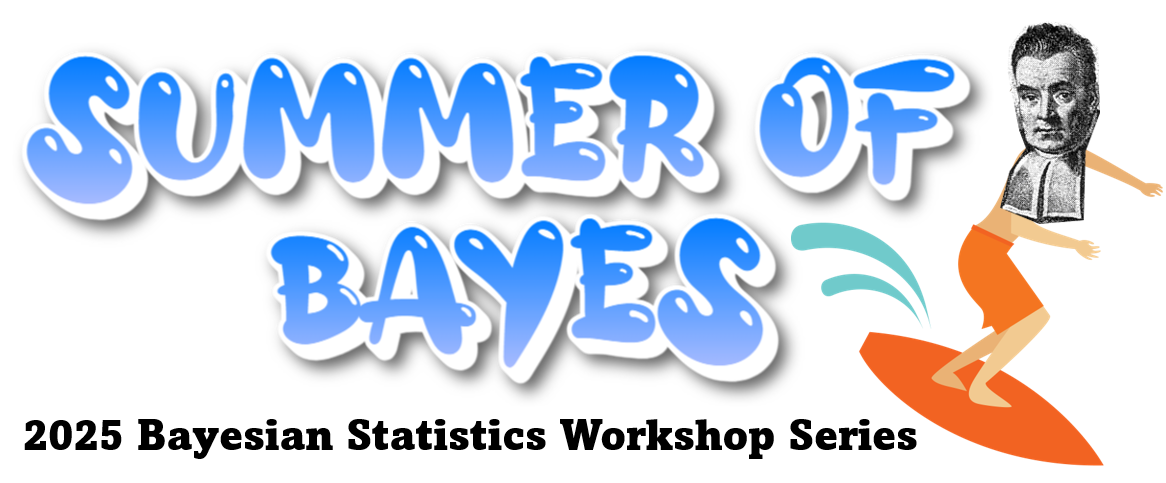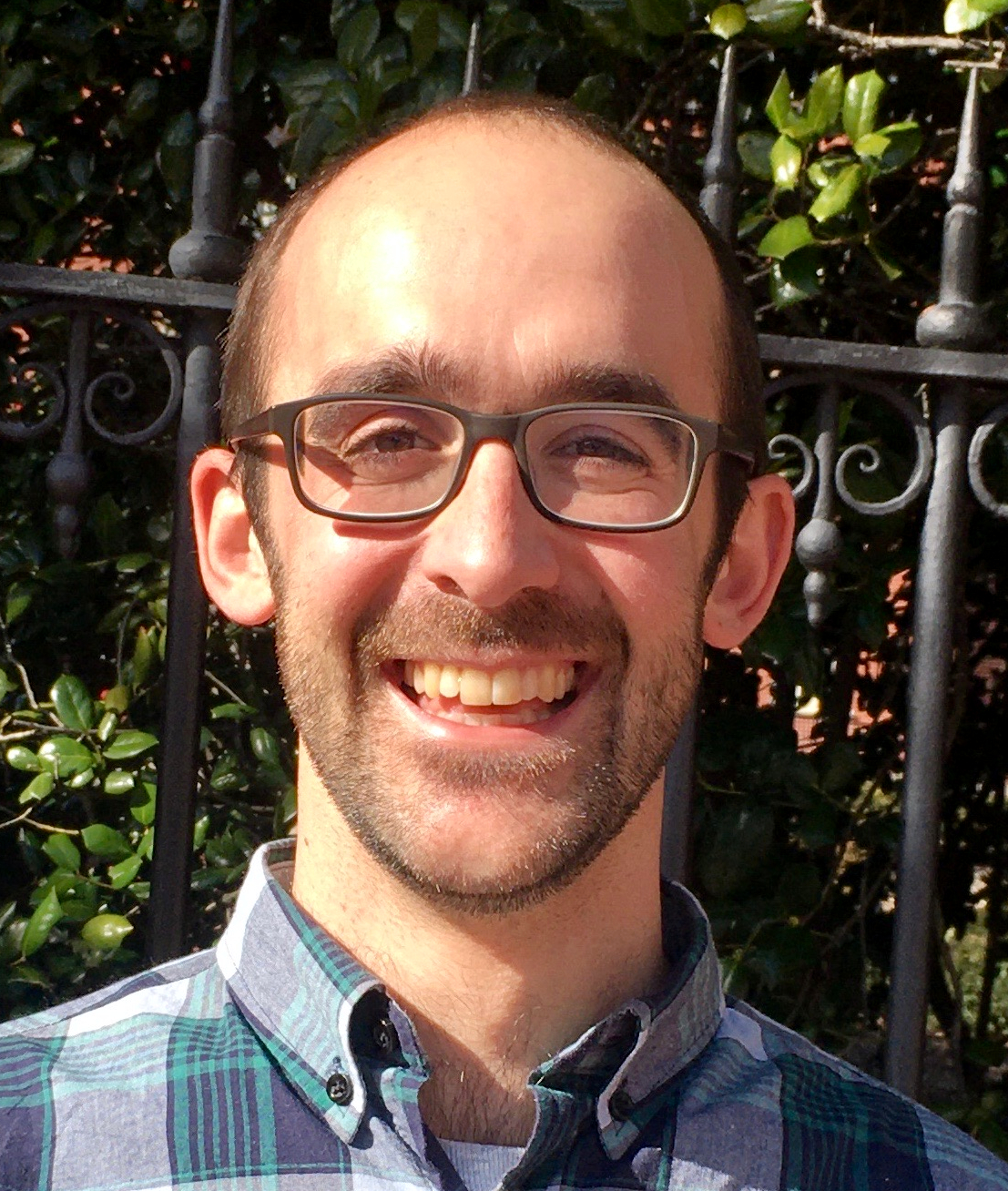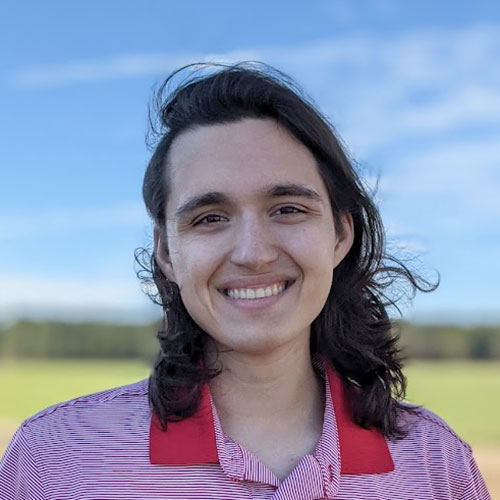2025 Summer of Bayes Stats Workshop main page

- What: Five-week Bayesian generalized linear mixed models workshop series
- When: Thursdays from July 31 through August 28, 2025, 2:00-5:00 PM Eastern time (1:00-4:00 Central)
- Who: ARS researchers in the Southeast Area
- Where: Broadcasting live from Raleigh, North Carolina via MS Teams
Quick links
- Pre-workshop instructions
- Schedule and course materials
- Self-study resources
- Instructor team
- Connection information
- Frequently asked questions
Pre-workshop instructions
You have two options for following along with the code in the workshop.
![]()
Option 1 - SCINet: I have created a shared project space on the Ceres computing cluster run by USDA ARS SCINet. You can run the R code on RStudio Server using Ceres OnDemand without installing anything on your own computer. You will need to register for a SCINet account if you do not already have one, free of charge. You can do this even if you’re not a USDA employee as long as you have someone in ARS act as your sponsor. Important - this may take a week or two, so please start the process well before the workshop! Then provide Quentin with your username and he will add you to the shared project space. You’ll get further instructions about how to access the shared space with the example data and pre-installed R packages and Bayesian software Stan. During the workshop, you will create RStudio Server sessions on Ceres OnDemand and run code from there.

Option 2 - Local computer: Install R, RStudio, all necessary R packages, and CmdStan on your own computer. We will not have time during the workshop to troubleshoot any installation issues that may arise. But you may find it more convenient in the long term to have access to all the software to fit models to your own data locally. Instructions on how to install R, RStudio, R packages, and Stan on your own computer are here.
Schedule and course materials
Pre-workshop login and troubleshooting drop-in session
Before the workshop starts, on Thursday July 24, 2:00-5:00 PM Eastern / 1:00-4:00 PM Central, we’ll hold a virtual drop-in session for you to confirm that you can access SCINet and make sure all the workshop software, data, and code worksheets are copied over to your own personal directory. Alternatively you can get help installing the needed software on your own machine. Please attend this session (you may join at any time). That way, we can devote the workshop time slots to learning about stats instead of getting frustrated about software!
Workshops
Each day, we will start at 2:00 PM Eastern/1:00 PM Central and go until 5:00 PM Eastern/4:00 PM Central, with a couple of 10-minute breaks included.
Below are the course materials for each week, including the full-text version of the lesson, the slides I’ll be teaching from, the worksheet, and a zip file with the pre-fitted model objects. Note that if you are using SCINet for the workshop, the worksheets and pre-fitted models will already be available on the server. If you are using your own machine, you will need to access the worksheets here, and optionally the pre-fitted model objects to save time compiling and sampling the models during the workshops.
| Date | Lesson text | Lesson slides | Code worksheets | Answers to exercises | Pre-fitted model objects (.zip) |
|---|---|---|---|---|---|
| Week 1: Thursday, July 31 | Introduction to Bayes | Slides | Worksheet / Worksheet filled in | Answers | Pre-fitted models |
| Week 2: Thursday, August 7 | Bayesian GLMMs | Slides | Worksheet / Worksheet filled in | Answers | Pre-fitted models |
| Week 3: Thursday, August 14 | Bayesian space and time models | Slides | Worksheet / Worksheet filled in | Answers | Pre-fitted models |
| Week 4: Thursday, August 21 | Beta, zero-inflated, and hurdle models | Slides | Worksheet / Worksheet filled in | Answers | Pre-fitted models |
| Week 5: Thursday, August 28 | Ordinal and nonlinear models | Slides | Worksheet / Worksheet filled in | Answers | Pre-fitted models |
A note on the worksheets: The worksheets are fill-in-the-blank R scripts. During the workshop you’ll follow along by filling in the blanks in the code, following what I’m typing on my screen, and running it. If you fall behind or get stuck, I’ve also provided a version of the worksheet with the blanks filled in. Only use that as a last resort, because you really do learn better if you have to physically type out at least some of the code! The worksheets will be pre-loaded onto the shared project space on SCINet, but if you’re running the code on your own machine, you’ll need to download them from this page.
Self-study resources
If you are interested in learning more about Bayesian statistics, mixed models, or statistical programming in R, here are some learning resources that might be useful.
Instructor team

Quentin Read, instructor
Quentin has been the USDA ARS Southeast Area Statistician since 2021. He has a background in plant ecology and interdisciplinary socio-environmental research. His learning journey in R and Bayesian statistics began when he started grad school at the University of Tennessee in 2011 and continues to this day! He enjoys promoting R, Bayesian statistics, and open and reproducible science at USDA.

Grant Billings, teaching assistant
Grant Billings is a Postdoctoral Research Scholar at North Carolina State University, co-mentored by Dr. Jeffrey Dunne and Dr. Amanda Hulse-Kemp. His main interests are in the design and analysis of plant breeding field experiments, the application of statistics to genetics and genomics, and modeling biological systems through simulation. Grant collaborates directly with multiple University and USDA-ARS breeding programs, primarily focusing on peanut and cotton. Grant has been a daily R user since 2018, using traditional frequentist statistics and, more recently, Bayesian methods for making inferences from data.
Connection information
Participants will get MS Teams connection information via email. The workshop will be recorded and video will be posted on the SEA Statistics Workshops page on Axon+.
Post-workshop Survey
After the workshop, please fill out this anonymous feedback survey to help me improve future stats classes!
Page last updated 2025-07-11